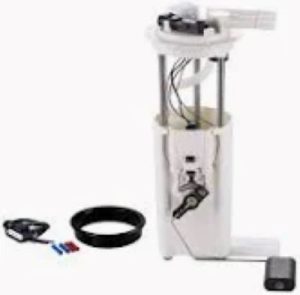The low level of fuel, clogged filters and mechanical wear contribute to the phenomenon that a loud rattling noise emanates from within the pump. Therefore the pump has to work harder producing more noise, which is often an indicator that maintenance needs to be performed. For example, the pump may make an awful “whining” noise from not enough fuel flow when riding on low tank levels – values less than 25 per cent. This can increase the operating temperature of a pump by 10–15%, aging it up to 20% quicker due to accelerated wear resulting from inadequate lubrication and cooling.
In actuality, fuel filters that have exceeded the recommended 20,000~40,000 mile interval can also cause a noisy pump. When the filter starts to clog with this debris it excersices fuel flow, which then makes the pump work a higher pressures and become more noisy. Stress can cause the motor in a pump to draw more power, which means keeping it at full 60 PSI just so that flow is not blocked could tend to be noisy. Through AAA studies, they have discovered that problems in the fuel system such as clogged filters account for around 15% of all vehicle breakdowns taking place on road which makes it utmost crucial to make sure you replace your filter at right time.
Another common fuel pump noise is wear in internal components, particularly on older pumps. The bearings, gears or impellers will degrade over time when the pump is used frequently at high pressures greater than 40-50 PSI. The same is true for high-performance pumps capable of running at 80 PSI (5.6 bar) or more, and these conditions cause parts wear faster than typical operating conditions which can lead to noisy operation due to the breakdown of moving internal componentsucchini copia The Walbro and other performance fuel pump manufacturers recommend checking the normal wear of your pumps regularly so you can nip any signs of excessive noise in the bud.

Inconsistency of the supply voltage too is a source for noise and fluctuations in the electrical grid as it will polluted with some additional signals • Random fluctuation_NOISE. Although pump requirements vary, most COD high pressure pumps work best between 12-14 volts and any voltage fluctuations could cause the pump to cycle unevenly, resulting in a vicious choppy or inconsistent noise. A 0.5-volt drop can reduce pump efficiency by as much as 10 percent and cause the pump to work harder, creating more noise in simple terms! Every 50,000 miles techs will want to check any wiring and relays for solid voltage and protection from straining the fuel pump.
...the fuel pump noise is getting worse in the high heat. A pump that is running in 100°F temperatures can be pushed to run as much as 5-10% hotter which stresses internal components and the operation will sound louder because parts expand and contract with heat. The quote that Henry Royce is very famous for “Take the best that exists and make it better…When it does not exist, design it.” Just links to maintain all small parts remain doing what they are supposed to doelligente. A Fuel Pump will be able to work in ideal conditions; enough amount of gasoline, clean filters and stable voltage which are all the necessary ones that do not cause noise abrasion or wear degradation.